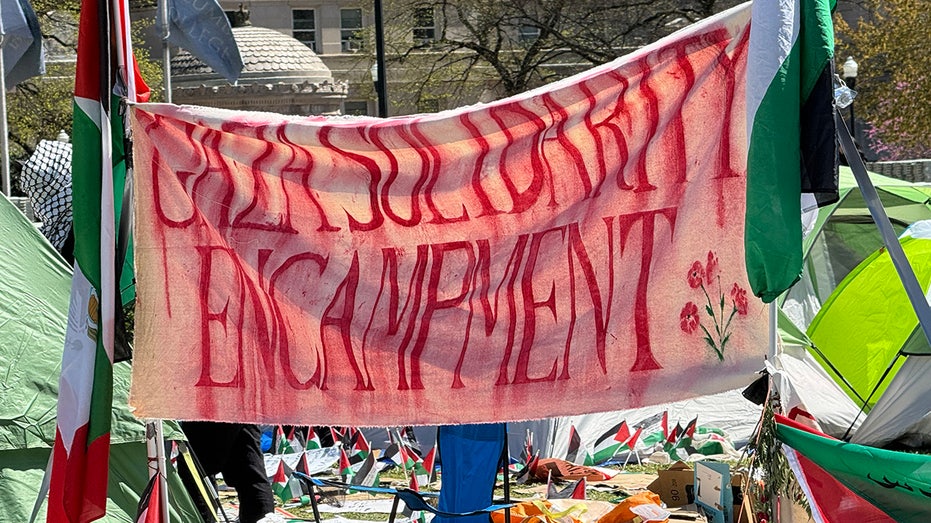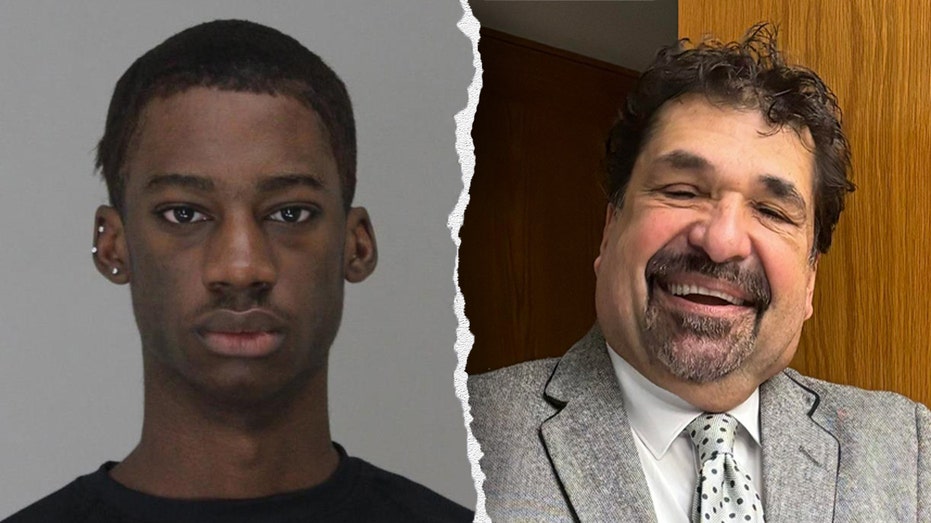Columbia sets deadline for agreement with protesters, threatens 'alternative options' for clearing protesters
Columbia University has set a deadline for administrators and anti-Israel protesters to reach an agreement that would include ending the encampment on campus and dispersing.

Columbia University in New York set a deadline for administrators and anti-Israel protesters to reach an agreement to end the encampment on campus, as a police presence is standing by at the university.
University President Minouche Shafik initially set a deadline of midnight for an agreement with student organizers that must include dismantling the encampment, dispersing and following university policies going forward.
Shafik said in a message to the university community Tuesday night that if discussions are unsuccessful, administrators would have to "consider alternative options for clearing the West Lawn and restoring calm to campus so that students can complete the term and graduate." The university has already moved to hybrid learning for the remainder of the semester over safety concerns sparked by the protest.
Around the expiration of the midnight deadline, a student demonstrator announced on the university's South Lawn that administrators had extended the negotiation deadline to 8 a.m., the university's student newspaper, the Columbia Spectator, reported.
Then around 3:15 a.m., a campus spokesperson released a statement saying that university officials and protest organizers were hashing out four main agreements and there is now a 48-hour window for negotiations — there was no mention of an 8 a.m. deadline extension.
Those terms include students removing a significant number of tents, that those protesting are only Columbia students, that those protesters comply with FDNY safety implications, and that "student protesters have taken steps to make the encampment welcome to all and have prohibited discriminatory or harassing language."
COLUMBIA UNIVERSITY MOVES TO HYBRID LEARNING ON MAIN CAMPUS AMID ANTISEMITIC PROTESTS
Demonstrators said they would not continue to negotiate with the administration without a written commitment that the administration will not be using the New York City Police Department or the National Guard on its students.
New York Gov. Kathy Hochul has said she has no plans to call in the National Guard to respond to the protests. But the NYPD did have its riot police and counterterrorism unit standing by overnight, according to student reporters from radio station WKCR. Police told demonstrators inside the camp to keep down the use of amplified noisemakers and beating against barricades or risk arrest.
Rep. Alexandria Ocasio-Cortez, D-N.Y. tweeted Tuesday night that any police enforcement against the anti-Israel protesters would be an "escalatory, reckless, and dangerous act."
"It represents a heinous failure of leadership that puts people’s lives at risk. I condemn it in the strongest possible terms," Ocasio-Cortez tweeted.
This comes after Ocasio-Cortez labeled anti-Israel protests on college campuses as "peaceful," and ahead of Columbia University's president setting a midnight deadline for protesters to reach an agreement or else face police invlovement.
Ahead of the initial midnight deadline Tuesday, demonstrators began to dismantle tents on the west side of the South Lawn, according to the Columbia Spectator. Some demonstrators had relocated to Furnald Lawn while dozens of others remained on the west side of the South Lawn.
Shortly after midnight, demonstrators began moving the tents back onto the west side of the South Lawn.
The deadline for an agreement comes just days after the university authorized the police on Thursday to sweep the encampment, leading to more than 100 arrests.
"I also want to be clear that we will not tolerate intimidating, harassing, or discriminatory behavior," Shafik wrote in her message Tuesday night. "We are working to identify protesters who violated our policies against discrimination and harassment, and they will be put through appropriate disciplinary processes."
"The right to protest is essential and protected at Columbia, but harassment and discrimination is antithetical to our values and an affront to our commitment to be a community of mutual respect and kindness," Shafik continued.


